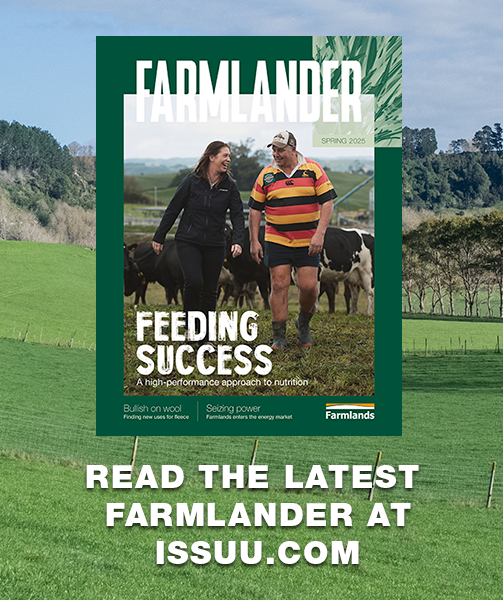
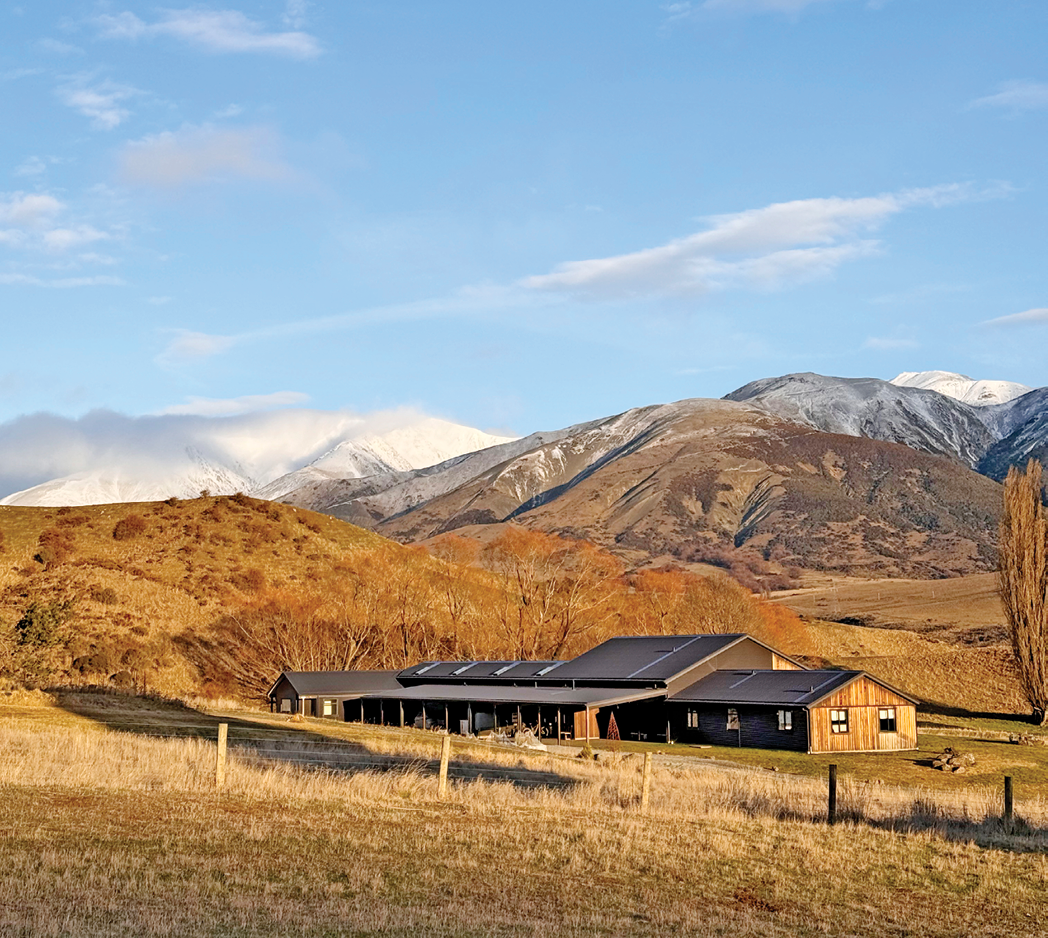
Farmers Fall in Love with Agritourism
Words by Niko Kloeten
It’s no secret that times have been hard for many in the rural sector, with rising costs and untimely weather events squeezing profit margins. What if there was an untapped opportunity to boost profit and diversify your business, sitting right on your doorstep?
That’s what many Kiwi farmers, growers and rural property owners are discovering, as they dive into the booming tourism genre known as ‘agritourism’, which shows off New Zealand’s natural beauty through a rural lens. For the Macdonald family of Middlehurst Station in Marlborough, tourism is a vital part of their succession planning. While many Kiwi farmers and growers watch their kids pursue other careers, and often leave the country altogether, all four of their children are working in the business. Willie and Susan Macdonald may not have expected this scenario when they bought Middlehurst Station in 1998, as their children Sophie, Henry, Lucy and Skye were still very young at the time. They were previously based at Mt Nicholas, which looks over Lake Wakatipu in Queenstown.
Situated in the picturesque but remote Awatere Valley, Middlehurst Station sprawls across 16,500ha on some of the most rugged farming terrain in New Zealand, with elevations ranging from 550m to 2,500m (around the height of Mt Taranaki). The Macdonalds run about 5,000 Merino ewes and have their own Merino stud on the property. They also have a herd of 400 Angus breeding cows who graze in the lower-lying parts of the station. At almost a third of the land area of Auckland, managing such a property is a challenge on its own, but that hasn’t stopped the Macdonalds making a series of bold moves to grow and diversify the business.
These included building on-site luxury accommodation, launching their own meat delivery service and, more recently, starting a Middlehurst Station farm store and gourmet butchery in Kaikoura. Henry manages Middlehurst Station’s farming operations, while his wife Joy manages and operates their luxury lodge, named The Quarters, which is nestled beneath Mt Lookout. Sophie, Skye and Lucy run the retail store, with Skye doing all the front of house and Lucy being the operations manager for the butchery. Meanwhile, Sophie does all of Middlehurst’s accounts, admin and HR.
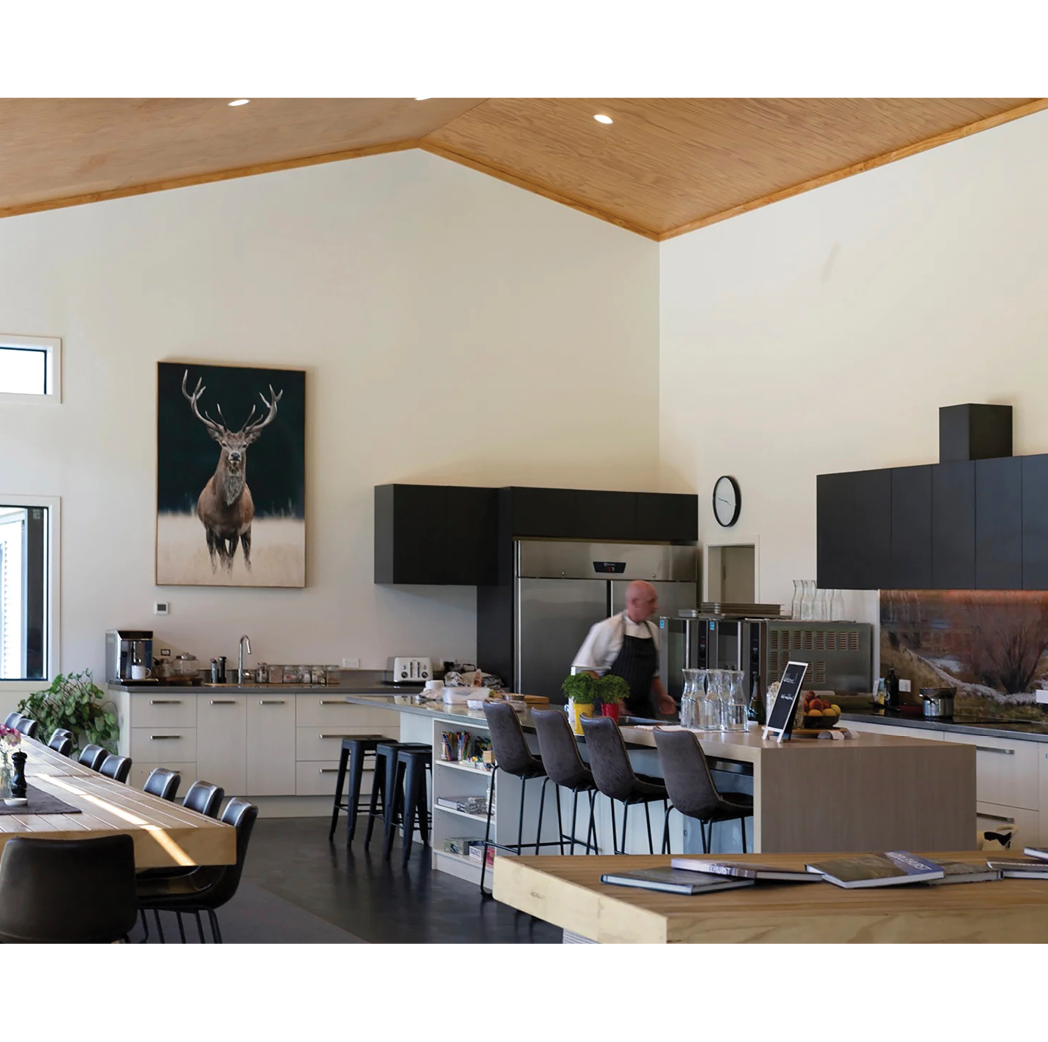
In it together
“We've all done our own thing after high school, and then some of us have been to uni, and then we've all come back and we're all working in various departments of the business,” says Lucy. “Everyone’s involved nicely. We are lucky that everyone's got their own lanes, and we can work well together, which is the main thing.” Like many Kiwi businesses, they managed to turn adversity into opportunity, building The Quarters after the destructive Kaikoura earthquake in 2016.
“The earthquake damaged the original shearers’ quarters and staff accommodation on the farm, and so mum and dad said, ‘we're building something new. Why don't we make it multipurpose?’ Because the shearers’ quarters only got used for 10 days of the year when we were shearing,” Lucy says. “We're on the Awatere Valley Road that runs right through Molesworth Station, so in the summer it does get quite busy. We thought, ‘why don't we open it up to tourists and show them what a working station is in New Zealand?” As well as offering luxury accommodation for longer stays, Middlehurst Station also does day trips, including a collaboration with Kaikoura-based South Pacific Helicopters which flies people up to the station for lunch.
The Macdonalds have continued to add to their tourism offering, with now includes options such as guided 4WD farm tours, e-bike hire, farm-totable cooking classes from their live-in chef, wood-fired hot tubs and even a driving range for keen golfers. Lucy says international tourism is starting to pick up again in the post-Covid era, but many of their visitors are Kiwis, including corporates and adventure groups. “We do lots of corporate retreats where they just want to get out of town, get away, switch off the devices and reconnect with each other. We see a lot of growth out of that, which is good.”

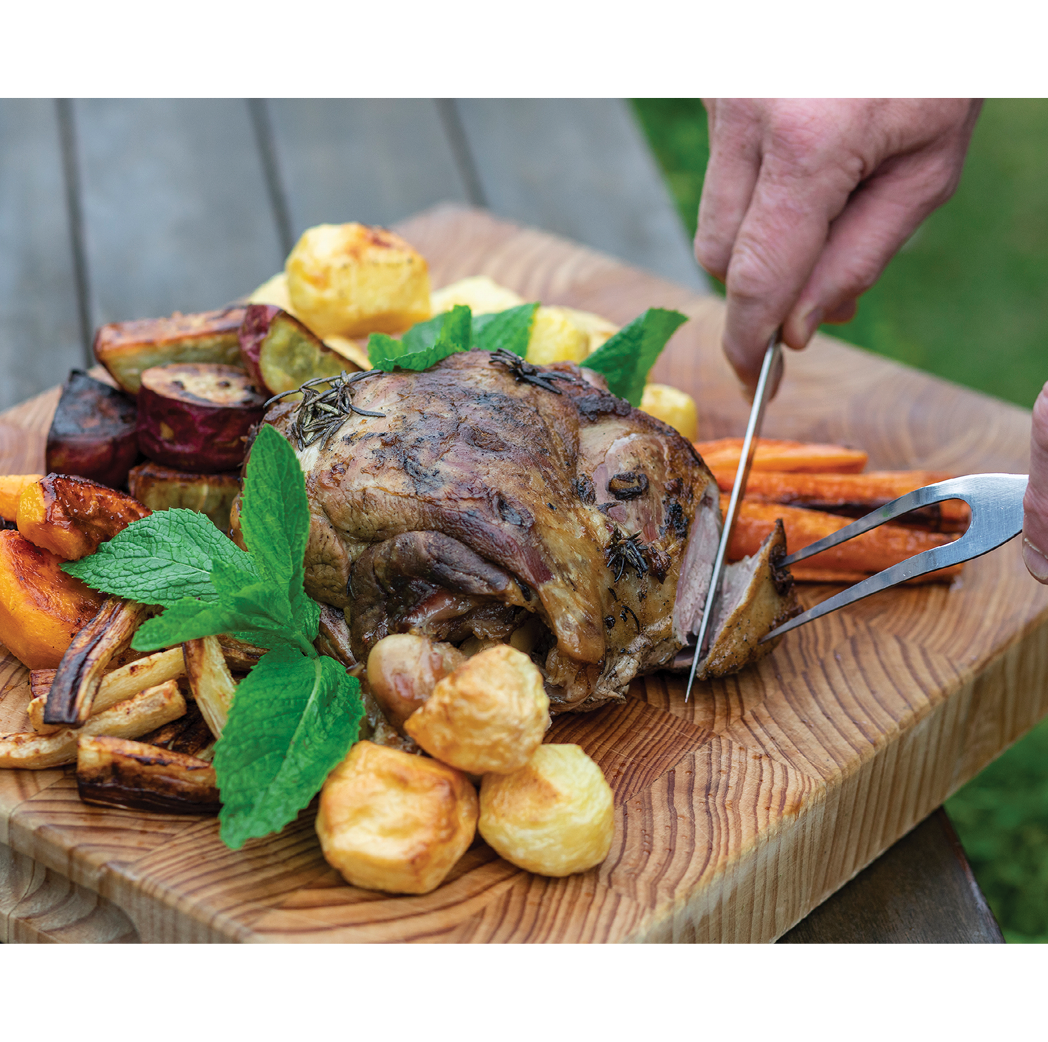
Tourist hotspot
The Macdonalds are hoping the post-Covid recovery in international visitor numbers will also boost their farm store, based in the tourist hotspot of Kaikoura. Lucy acknowledges they have picked a tough economic time to launch new businesses, but she says her family does things differently, testing the waters to see if they can make it work. “The meat boxes came around after the first Covid lockdown and they went really well during the second lockdown. People were sitting at home wanting to cook and create what the chefs did, because they couldn't go out.”
While their meat delivery service has continued, Lucy says they have had to navigate the changes in consumer behaviour after lockdowns ended. “We've noticed the last couple of years people have wanted more of that in-store experience, so that's why we diverted towards the retail option,” she says. “That's been cool to have a positive space where we can show people what it's like up at the farm. We do a lot of work around telling our story and portraying how we want the store to look and feel, like it's just another branch of the farm.”
Launching the store allows them to capitalise on another trend, which is a growing level of consumer interest in where and how their food is made. “We want people to know where their food comes from, by having that connection with the farmer and build and grow those relationships, so people do have that understanding and that connection back to their food. “It's been an amazing but really tough first year in retail. I think it’s hard out there for a lot of businesses, so we're just going to keep on keeping on. It's all about growing and evolving what we've started. We are really looking forward to the next couple of years.”
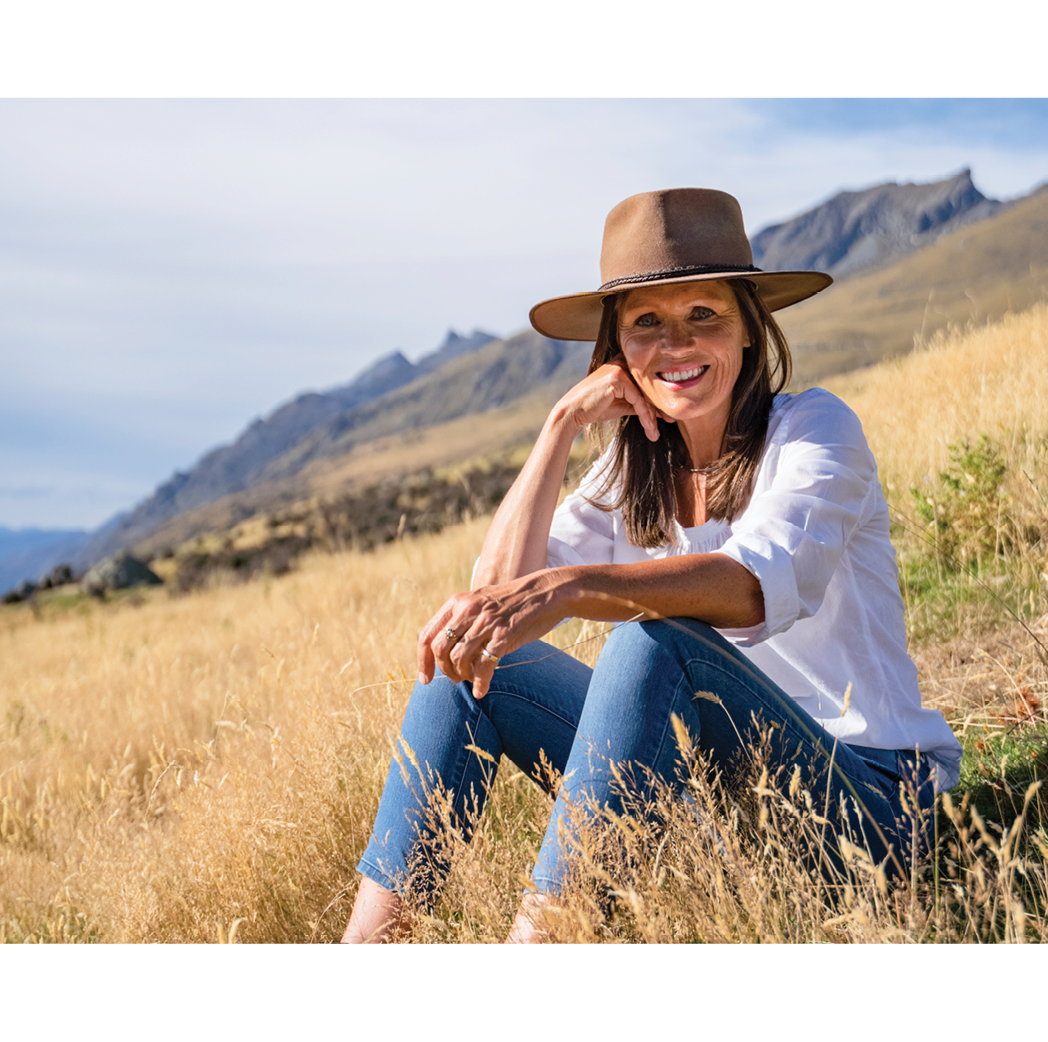
Growth industry
Starting a business in a completely new industry can be daunting, and Middlehurst has had help from the Agritourism Academy, which supports Kiwis to start and build their agritourism businesses. The academy, which recently won Best Use of Technology in Agritourism at the 2025 World Agritourism Awards, is a new initiative by industry group Agritourism NZ. Founder and CEO Marijke Dunselman says there has been a perception from some in the farming sector that tourism is not a “serious” business, but attitudes are starting to change.
“It's a bit of a no-brainer because tourism over the past 50 years has been growing at a rate of 6.5% compounded growth each year,” she says. “Pre-Covid it was New Zealand's largest export earner, and it's almost back to where it was before, so the combination of tourism and agriculture… there's a lot of potential there.” Not only is New Zealand’s tourism industry massive, but farmers occupy an important niche, with growing interest in eco-tourism and more nature-focused holidays.
“People are looking for destinations that are off the beaten track,” Marijke says. “They want to meet the real people. They love that connection with the land, the people and the animals, learning where their food comes from. It’s not just international, but also the domestic market.”
Born in the Netherlands, Marijke worked in marketing before moving to New Zealand over 30 years ago. She developed a passion for agritourism while working for Tourism Southland, where she got to meet many local farmers. “Farmers are different than your average tourism operator whose focus is completely tourism; they might have a background or a qualification in tourism, whereas farmers are focused on farming.”
Starting out in agritourism can be daunting, but Marijke says there are many different options, ranging from full guided tours and luxury lodges to small pods and cabins. If farmers don’t want to run their own tourism operation, they have the option of leasing or contracting it out. “I know people who have a few basic accommodation offers that make $100,000-$200,000 extra a year. That allows their kids to go to boarding school, they get to go on holiday, and it doesn't take that much work. And the return on investment is really high.”
Another benefit of agritourism is its potential to help families with succession planning, by increasing profitability and offering new avenues for family members to work in. “I work with people where the kids have come back to the farm with a partner and developed a luxury lodge, and that's their business on the farm. The farm is still running, but it allows kids to come back and work, because the return on that land is a lot higher,” Marijke says. “It's not just the return for the farmer; it also employs local people. You have that multiplier effect, and it helps to build those rural communities.”

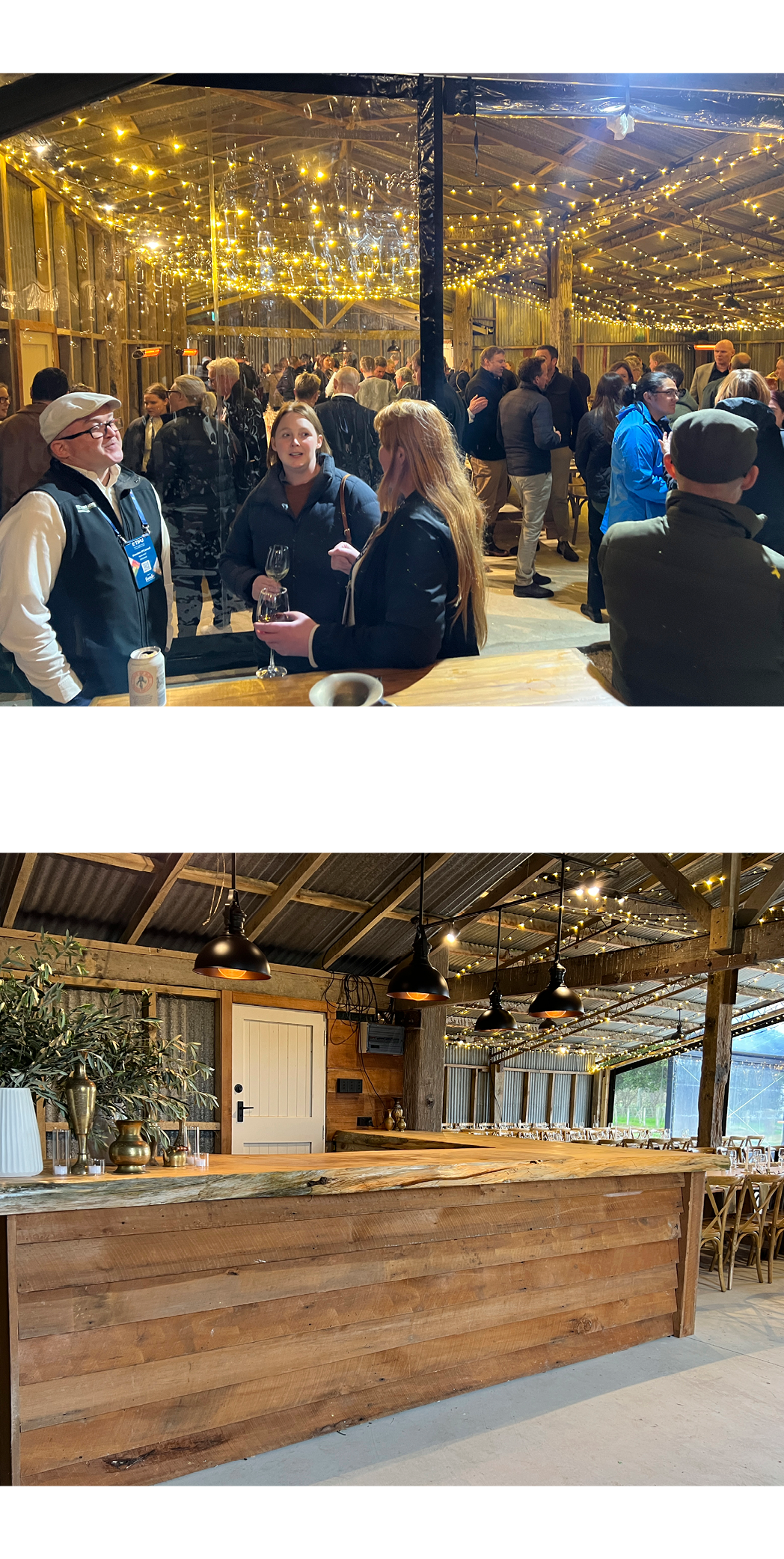
Starting out
Manawatu dairy farmers Jana and Mat Hocken have also worked with the Agritourism Academy on their brand-new agritourism venture, which wasn’t so much the Field of Dreams approach of “If you build it, they will come” as “They’re already here, so we might as well build it”. The Farmlands shareholders are prominent figures in the farming community, with Jana running the Lean Farm Project (read more about this story in the autumn 2024 edition of Farmlander) and Mat chairing the Rural Innovation Lab. Their farm Grassmere Estate now offers farm tours, accommodation in their 100-year-old homestead and rustic venues for corporate functions, including their historic barn which hosted the pre-conference dinner to the New Zealand Future Food and Fibre Summit 2025 (E Tipu) in May.
Jana says one of the drivers for getting involved in tourism was the response they got from the tours they were already doing on their farm. “Because of my Lean Farm and Mat’s Rural Innovation Lab, we've always had people that come and visit our farm, so we've had loads of different groups. That was one thing that started us thinking, maybe our farm is quite an interesting place to visit.” While most of their visitors over the years have been other farmers, last year they had a tour group from Canada, which showed how strong the appeal of agritourism can be for non-farmers.
“I don't even know how they came across us, but there were about 40 of them. What was interesting was that half of them were farmers and half of them were totally different people like accountants and nurses, and they loved it,” Jana says. “We thought, oh my Goodness, do non-farmers actually want to go on their holidays to New Zealand to visit farms? And believe it or not, they do.”
Taken for granted
While New Zealand’s beautiful countryside is a drawcard for tourists from across the world, Jana says many Kiwi farmers are so used to it they don’t fully appreciate what they have. “We've just got so many beautiful aspects on our farm, like the river. When we had these tour groups, we ended up taking them down there, and literally they could have paid us to just throw rocks in the river the whole day. “We've had people from places like Malaysia and Thailand and it’s unique for them to go down to a river that's pristine and there's no one around. These are the kinds of simple experiences that we just take for granted.”
Having recently bought another 390ha dairy farm a few minutes away, Mat and Jana are pressed for time even without the tourism venture. Fortunately, they have Katy, wife of their farm manager Rob, who will be managing that side of the business. “She has a customer service and events background and is just amazing with people,” Jana says. “It's going to be a massive learning opportunity for her, but it's quite cool we can bring our farm team in on this. “The social aspect of this is very important to us. We’ve spent quite a bit of time overseas, and we travel quite a bit, but generally, people that go into farming aren't the most social people, and it can be quite isolating. This is a cool way to bring people from all over the world to our farm.”
Jana says many farms have old homesteads like their one, and she’s hoping their experience will show others what can be done if they are restored. “It's such a shame, but you drive past all these old farms with tiny old farm buildings, and they're all falling down. But if you restored them, people would pay for that because it’s such a unique experience to stay in one of them.”

